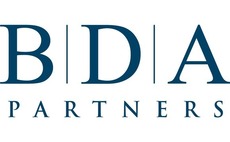
Held to account: The Big Four in China
A legal ruling might ban the Big Four accounting firms’ China affiliates from working on US-listed Chinese companies. VCs aren’t worried about IPO prospects, but there are longer-term concerns
It appears to be a classic case of good cop, bad cop designed to maneuver a recalcitrant adversary. While the Public Company Accounting Oversight Board (PCAOB), America's accounting industry watchdog, is conciliatory when negotiating with Beijing over access to audit documents for US-listed Chinese companies, the Securities Exchange Commission (SEC) is wielding a big stick.
Three weeks ago, the agency scored a potentially big hit: an SEC administrative trial judge recommended the China affiliates of the Big Four accounting firms be barred from working on US-listed Chinese companies for six months. This was the conclusion of a ruling that Deloitte Touche Tohmatsu, Ernst & Young Hua Ming, KPMG Huazhen and PwC Zhong Tian had violated US law by refusing to turn over documents pertaining to 10 companies under investigation for accounting fraud.
The Big Four described the decision as "regrettable" and plan to appeal.
Then, in a dramatic twist to what has become a long-running saga, James Doty, chairman of the PCAOB, last week said he was optimistic of the US and China reaching an agreement that would resolve the long-running dispute. The US authorities might be able to start inspecting the audit work of PCAOB-registered firms based in China, including the Big Four's affiliates, as early as this year.
"The PCAOB have been the good guys, keeping negotiations going and making meaningless agreements like the enforcement cooperation memorandum of understanding (MoU). The SEC has been the bad cop, banning the Big Four and some smaller firms from practice and apparently refusing to negotiate," says Paul Gillis, a professor of accounting at Peking University's Guanghua School of Management.
Half full or half empty?
The doomsday scenario is as follows: if the ruling stands, more than 100 US-listed Chinese companies would be left without an auditor and - with annual reports due April 30 - facing trading suspensions. Multinationals with significant operations in China could also find themselves drawn into this mess.
Those seeking to go public in the US would be forced to opt for another jurisdiction, delay their plans in the hope that the two governments can reach a swift resolution, or press ahead with a lower-tier auditor.
There are not appetizing prospects but companies and their venture capital investors are not necessarily alarmed at the situation. Rather, there is mild frustration at being caught up in a wider political dispute over which they have no real influence.
"This decision reflects the frustration at the lack of progress during three years of ongoing discussions," says Jeff Maddox, a Hong Kong-based partner at law firm Cadwalader, Wickersham & Taft.
"A lot of our US reporting clients have moved to the Big Four from smaller accounting firms, partly because of the reputational risks and to show stronger auditors. Some of these companies have been listed in the US for years and have never had any issues with frauds or accounting irregularities."
Frauds and accounting irregularities at a number of US-listed Chinese companies started making headlines in the second half of 2011. The naming and shaming, often led by short seller research firms, continued well into 2013. Targets tended to be companies that had gone public via reverse takeovers (RTOs) - which involve less regulatory scrutiny than IPOs - in the early 2000s.
Many were audited by smaller accounting firms that didn't have the experience or resources to conduct adequate inspections of financial statements in China.
It was estimated that at least 350 companies had taken the RTO route over a 10-year period, with the PCAOB identifying 159 between 2007 and the first quarter of 2010 alone. Share prices of US-listed Chinese companies slumped, even those that were completely untainted, and investor appetite for IPOs disappeared.
However, when the SEC asked accounting firms' China affiliates to audit documents so the frauds could be investigated there was no cooperation. The China Securities Regulatory Commission (CSRC) doesn't allow China-based auditors to share paperwork with foreign regulators.
Last June there was a breakthrough as the CSRC, China's Ministry of Finance and the PCAOB signed their enforcement cooperation MoU. The January ruling confirmed suspicions that it was a false dawn. Critics describe the eight-page MoU as "too light," adding that the document didn't manage to address how US regulators could conduct routine inspections of accounting firms in China.
"It's important to recognize that the ruling indicates a governmental disagreement, not just a jurisdictional issue," says Drew Bernstein, co-managing partner of Marcum Bernstein & Pinchuk (MBP). "It sends a clear message to both the Chinese and the US governments that the people working in the China space are getting very upset so US regulators feel pressured to get something done through the jurisdictional system."
With the Big Four's appeal process likely to take anywhere between four and 12 months, there is time to address the problem. The impact on companies trading or seeking to trade on US bourses will therefore be delayed and, if indeed it is imposed, the ban only lasts six months. Those directly involved tell AVCJ they are not hugely worried.
"Right now everything is going step-by-step but I think in the near future - at least this year - it wouldn't pose any issues to the audits," says J.P. Gan, managing partner at Qiming Venture Partners, who heads the audit committee for US-listed travel bookings site Ctrip.com and sits on the board of both Jiayuan.com and Taomee Holdings.
Kaiser Kuo, a spokesperson for Chinese internet giant Baidu, says they "believe the chances of actual share suspension in the US are vanishingly small."
IPO outlook
Neither are the developments likely to rein in the IPO market, which gathered pace during 2013 and is now in top gear. Approximately 30 VC-backed tech firms are in various stages of IPO preparations, with the US their favored destination.
JD.com, China's largest online retailer after Alibaba Group's TMall, filed for an offering of up to $1.5 billion on NASDAQ. The announcement came less than two weeks after the ruling against the Big Four. Alibaba Group is also expected to go public in the US this year. Others making preparations include software provider Kingsoft Corp, real estate website Anjuke.com, gaming company Chukong Technologies and online cosmetics retailer Jumei.com.
"This will be an interesting year," Gan says. "We have several portfolio companies looking at different listing venues. Most of VC investors are treating it as a temporary issue and we're optimistic that the issue will be resolved. Everyone, including investment bankers, lawyers and accountancy firms, is pushing for IPOs. Processes are not slowing down."
Yet at the same time Chinese enthusiasm for US listings has cooled compared to a few years ago. Until relatively recently this could be explained in part by the rise of renminbi-denominated private equity funds and the interest in domestic IPO exits. That fervor has dimmed but there remains a sense among Chinese companies that they are not welcome in the US. This could have serious long-term ramifications.
"The ruling has the potential to cause chaos in the market down the road. If the ruling is upheld, companies may need to delist and then re-list, perhaps in Hong Kong. It's not helpful to the market and it's not the solution to the conflict of laws problem," says Cadwalader's Maddox. "It is just a one-off punishment in relation to the 10 cases subject to the decision."
More than 120 VC-backed Chinese players have raised $15 billion through US IPOs since 2000, according to AVCJ Research, reaching a peak in 2007 when 30 offerings raised $5.8 billion. There were six IPOs in the second half of 2013, trailing the total of 15 seen in 2011, but a vast improvement on the two completed in 2012.
On the other hand, 11 private equity-backed take-private deals for US-listed Chinese companies have been completed since August 2011 and about 15 more are in process. Shanda Games, the NASDAQ-listed online gaming subsidiary of Shanda Interactive Entertainment (SIE), is the most recent addition to the tally.
Meanwhile, Shanda Games' sister company Cloudary Corp. withdrew its US IPO application in July, having originally filed in May 2011. Robert Chiu, chairman of Cloudary and president of SIE, told AVCJ at that time at time the "unfriendly" market environment created by the accounting scandals was the key factor behind the decision.
Some accounting firms have also been turned off by the US market. BDO Hong Kong shifted its business strategy to focus on Hong Kong three years ago, in anticipate of increased demand for auditing services from Chinese companies looking to go public in the city. The firm severed ties with BDO China Dahua, which had worked on US listings for Chinese companies, and replaced it with a new affiliate.
"Chinese companies still have room for improvement in corporate governance. In this context, the risk for these firms going public in the US is quite high because class action lawsuits are common practice there," says Albert Au, chairman of BDO Hong Kong.
He is also uncertain as to whether the US and Chinese governments can resolve their accounting dispute and expects more companies to list in Hong Kong as a result.
Imperfect solutions
However, it remains to be seen if Hong Kong is willing to accommodate these companies. In addition to operating under a merit-based approvals system - which precludes companies running at a loss, as is the case for many tech firms - the exchange was caught up in a spat with Alibaba last year over the latter's listing plans.
Hong Kong endorses the "one share one vote" approach and does not allow the dual-class structures that allow the founders of US-listed companies to retain control post-IPO. Alibaba proposed a bespoke ownership structure, whereby 28 senior executives would be able to nominate a majority of the board members despite only holding a combined post-listing equity stake of around 10%. It was rejected out of hand.
Unless attitudes change, the US is likely to remain the first choice of tech entrepreneurs. And this requires the support of large investment banks and Big Four accounting firms. "It's an industry custom," says Qiming's Gan.
There remains the possibility of a temporary switch to a second-tier auditor, but these firms are not immune to the regulations imposed on the Big Four.
"After the ruling was announced, we did get calls from clients of the Big Four asking about alternatives if the worst did happen," says MBP's Bernstein. "But as a second-tier firm, I don't think it would benefit MBP in the long term. We already do a lot of business for the Big Four's clients - providing consulting and audit assistance for some smaller mergers and acquisitions. In the end we need the Big Four to keep the ecosystem healthy for all of us."
There are about 110 PCAOB-registered accounting firms in China and Hong Kong firms. Should the SEC make a request to see audit documents, any one them might be subject to a ban for non-compliance because they are also bound by the CSRC's restriction on sharing paperwork.
There is no escape from this situation without a proper breakthrough between the CSRC, SEC and PCAOB.
"The ruling is designed to get people's attention, which it certainly has, but ultimately different solutions will have to be broached between the regulators themselves rather than individuals involved in particular cases," says Cadwalader's Maddox.
Latest News
Asian GPs slow implementation of ESG policies - survey
Asia-based private equity firms are assigning more dedicated resources to environment, social, and governance (ESG) programmes, but policy changes have slowed in the past 12 months, in part due to concerns raised internally and by LPs, according to a...
Singapore fintech start-up LXA gets $10m seed round
New Enterprise Associates (NEA) has led a USD 10m seed round for Singapore’s LXA, a financial technology start-up launched by a former Asia senior executive at The Blackstone Group.
India's InCred announces $60m round, claims unicorn status
Indian non-bank lender InCred Financial Services said it has received INR 5bn (USD 60m) at a valuation of at least USD 1bn from unnamed investors including “a global private equity fund.”
Insight leads $50m round for Australia's Roller
Insight Partners has led a USD 50m round for Australia’s Roller, a venue management software provider specializing in family fun parks.







